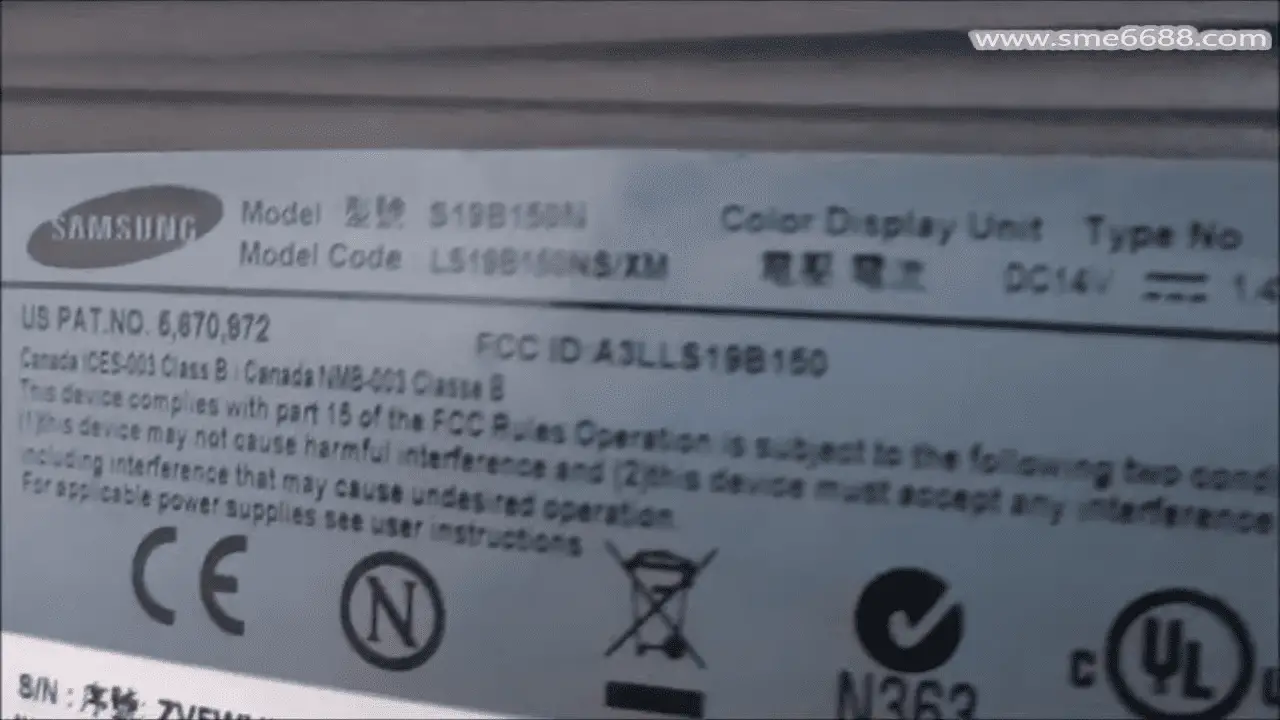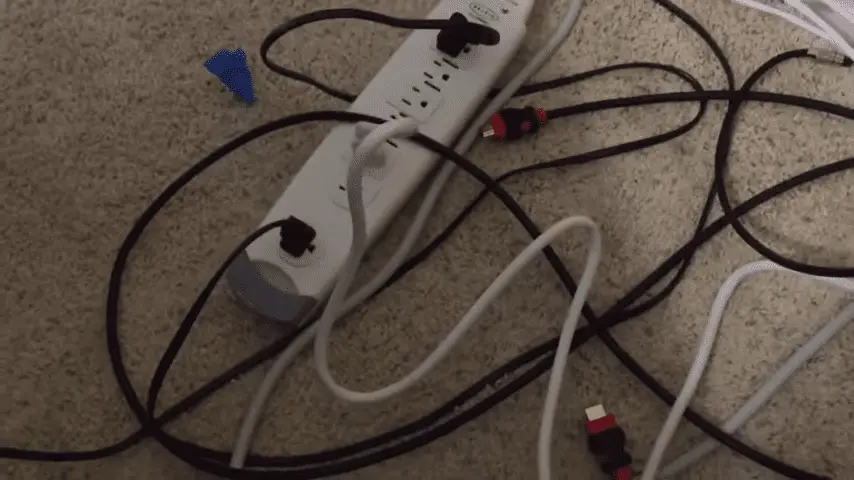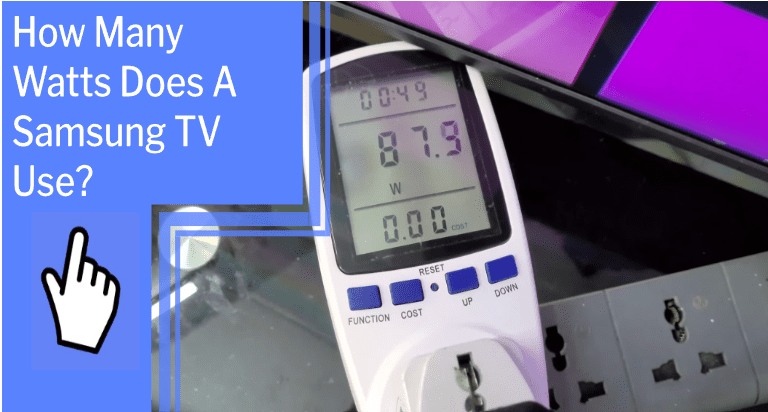As a savvy consumer, you’re always looking for the most efficient way to do things and save money. That’s why it’s important to know how many watts a Samsung TV uses. With the right information, you can make an informed decision when purchasing a new TV and save money on your electricity bill.
Knowing the wattage breakdown of your Samsung TV will give you the power to make an educated decision and control your energy costs. In this article, I will explain how to calculate the wattage of your Samsung TV and discuss the Energy Star standards related to TV use.
I will also review the average wattage used by different models and give you tips on how to reduce the wattage of your Samsung TV.
Key Takeaways
What you will find in this article
Toggle- The power consumption of a Samsung TV depends on its size, technology, and features.
- The average power consumption of a Samsung TV in On mode is 103.3 watts, and in Standby mode it is 0.05-0.5 watts.
- Using appropriate contrast, reducing backlight, turning off the TV, and using power-saving features are some ways to save energy.
- The resolution of a Samsung TV plays a significant role in power consumption, with higher resolutions resulting in almost double the electricity usage.

What is a Watt?
Wattage is an important factor to consider when looking at Samsung TV power consumption, as it can vary substantially depending on the resolution, size, and features of the TV. Understanding the difference between a watt and a joule is essential for accurately calculating the wattage of your Samsung TV.
A watt is a unit of power, while a joule is a unit of energy. Power is a measure of how much energy is expended over a given period of time, while energy is the total amount of energy used in a period of time. This means that a watt is a measure of how much energy is used over a set amount of time, while a joule is the total amount of energy consumed in a period of time.
This is why it is important to understand the difference between watts and joules when calculating the wattage of your Samsung TV. Knowing the wattage of your Samsung TV can help you determine the amount of electricity it will use, and in turn, how much your electricity bill will be.
Calculating the Wattage of Your Samsung TV
To calculate your Samsung TV’s electricity usage, consider the device’s size, resolution, and features to get an accurate estimate. Wattage calculations are essential to understanding how much energy your device will consume. Here are a few steps to help you calculate the wattage of your Samsung TV:
- Familiarize yourself with the wattage of different Samsung TVs. Research the wattage of 55-inch, 65-inch, and other sizes to get an idea of the wattage your Samsung TV will consume.
- Calculate the amps your Samsung TV will use. Knowing the wattage will help you determine how many amps the device will use.
- Estimate the monthly and yearly costs of running your Samsung TV. Calculate the number of watts and amps and multiply them by the number of hours you will use the TV to get a more accurate estimate.
By taking into account the size, resolution, and features of your Samsung TV, you can accurately calculate the wattage and understand the device’s energy consumption. This knowledge will help you determine the monthly and yearly electricity costs of running your Samsung TV.

Average Wattage of Samsung TVs
You can expect your Samsung TV to consume significant energy, depending on its size and features. For example, a typical Samsung TV of 55 inches can range from 80 watts to over 200 watts depending on the resolution and backlight settings. Generally, the larger the size of your TV, the more wattage it will consume.
Comparing wattage between different models is a great way to see how efficient different TVs are in terms of energy consumption. The newest 8K resolution TVs tend to consume more energy than their 4K counterparts, but the improved picture quality may be worth the cost in energy.
When shopping for a Samsung TV, it’s important to understand the wattage comparison between different models and resolutions. This will help you make an informed decision when selecting the perfect TV for your needs.
The Cost of Running Your Samsung TV
Running your Samsung TV can add up over time, so it’s important to consider the cost of electricity when selecting a model. Knowing the wattage of the TV is key to understanding how much you’ll be spending on electricity.
While it may be tempting to go with the largest TV possible, its power consumption should also be considered. To save energy, it’s important to take advantage of energy-saving tips such as unplugging the TV when not in use, reducing the backlight, and adjusting the contrast. These can all help reduce the wattage and the cost of electricity.
With a few simple steps, you can make sure you’re not overspending on electricity for your TV.
Now that you know the wattage of your Samsung TV and how to reduce it, it’s time to look at how much it costs you. By multiplying the wattage of your TV by the number of hours, it is used and the cost of electricity, you can get a good estimate of how much the TV costs you each month.
This can help you understand the true impact of your TV on your monthly electricity bill and make informed decisions about how to save energy and money.

Reducing the Wattage of Your Samsung TV
By making a few small changes, you can dramatically lower the amount of electricity your TV consumes and save money on your electricity bill.
One of the most effective ways to reduce wattage and energy consumption is to adjust the contrast settings. Most people have their TVs set to the highest contrast, which makes for a brighter, more vibrant image. However, this also uses more power and increases the electricity bill. To reduce wattage, try turning the contrast down to a more moderate level. You can always tweak the settings further until you find the perfect balance of brightness and power efficiency.
Another way to reduce wattage is to make sure your TV is not set to the showroom settings. Showroom settings are optimized for maximum brightness and contrast, which is great for viewing in-store, but it’s not necessary in the home. If you adjust the brightness and contrast settings to more standard levels, you can make a noticeable difference in your energy consumption.
The same goes for using the built-in timer when available. Setting the timer to turn off your TV when you’re not watching can save a lot of energy. By making small adjustments such as these, you can reduce the wattage of your Samsung TV and make sure you’re using energy efficiently.
Conclusion
As we’ve seen, there are a number of factors that affect the wattage of a Samsung TV. Although the wattage can be high, it doesn’t have to be a burden. By taking a few simple steps to reduce the wattage of your TV, you can help keep your energy costs low and save money in the long run. Staying mindful of your TV’s energy consumption can also help you be more environmentally friendly. So, don’t be afraid to power up your Samsung TV – just make sure you do it responsibly!
Frequently Asked Questions:
I’m mindful of the environmental effects of using a Samsung TV. By conserving energy, I’m helping to reduce emissions and protect our planet. Turning off the TV when not in use, using power-saving features, and adjusting contrast are simple ways to reduce energy consumption.
Samsung Smart TVs offer many features to give you control and convenience. Enjoy voice control with Smart Voice, amazing picture quality with 4K and 8K resolution, and energy-efficient settings to reduce your electricity bill. Get the ultimate viewing experience with Samsung Smart TVs.
Yes, the wattage of a Samsung TV affects its picture quality. Energy efficiency is key – the higher the wattage, the more power it consumes, and the lower the quality. To get the best picture, adjust the contrast and look for power-saving features on your TV.
No, there is no scientific evidence of any health risks associated with using a Samsung TV. Radiation exposure is minimal, and research suggests that TVs are safe for daily use. Enjoy the immersive experience of a Samsung TV without fear of any health risks.
More related content
Samsung 55 Inch TV Troubleshooting (Complete Guide)
Samsung Smart TV 40-Inch Troubleshooting To Fix Common Issues

